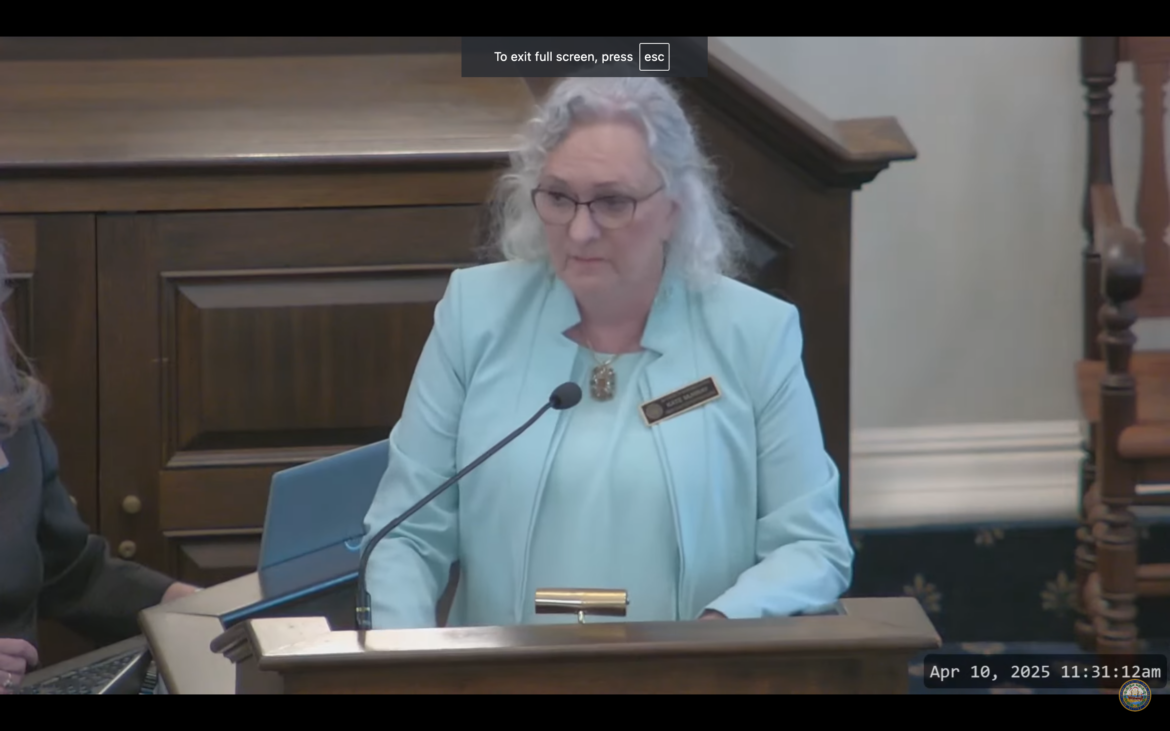By GARRY RAYNO, InDepthNH.org
CONCORD — By a slim margin, the House Thursday approved expanding the Education Freedom Account program to every child in the state in the second year of the next biennium.
House Bill 115 would also increase the current salary cap from 350 percent of the federal poverty limit to 400 percent for next school year, which House budget writers estimate will cost $17.5 million more than Gov. Kelly Ayotte proposed in her budget for the program.
Ayotte also sought to limit the program in the second year of the biennium to students who have spent at least the prior year in public school before being eligible for EFA grants.
The House Finance Committee used student estimates from Josiah Bartlett Center for Public Policy president Drew Cline, who is also State School Board Chair, for determining the cost over the biennium. Cline’s estimates are lower than the Children’s Scholarship Fund NH’s executive director Kate Baker Demers’ estimates for the number of students who would participate in the program if the salary cap is lifted.
During debate on the bill, Rep. Kate Murray, D-New Castle, said the unpopular program’s costs have increased more than 200 percent since the first estimate of $300,000 for the first year, when the actual cost was $14 million, which increased to $22 million the second year and then $28 million this year.
The latest estimate from the Department of Education is for this year’s costs to be more than $30 million.
Murray said the expansion is expected to cost the state from $60 million to $100 million when the salary cap is removed based on estimates from Reaching Higher NH, a public school advocacy group.
“This is nothing more than a state taxpayers’ grant to people wealthy enough to send their children to private schools,” Murray said, “and they may never have set foot in a public school.”
There is no standard assessment for the voucher program so there is no way to determine if the child is receiving a good education or not, she said.
About 75 percent of the grants go to families whose children were not in public schools when they joined the program, but were in private or religious schools or homeschooled.
At the time when every other program in the state is being cut, Murray said, this is no time to expand the EFA program to help a select small group who can afford to pay for private schools.
She said lawmakers should listen to their constituents who do not like the voucher program.
Eileen Kelly, D-Bradford, noted dozens of communities had warrant articles rejecting the school voucher program and its use of taxpayer money for religious schools, and more are to be voted on soon.
Rep. Valerie McDonnell, R-Salem, said the program has saved taxpayers millions of dollars, and that 86 percent of parents support school choice.
“Students should never be turned away from the education they want because of zip code or ability to pay,” she said.
Rep. Kristin Noble, R-Bedford, said everyone wants what is best for children.
She noted the program has won awards as being the best administered program in the country.
“Increasing the cap makes (the program) available to all school-aged children,” Noble said, “regardless of income just like public schools.”
The bill passed on a 188-181 vote.
The bill now goes to the Senate for its action.
The provisions of the bill are included in the fiscal years 2026-2027 biennial budget package the House voted on later in the day.
The Senate passed its own version of expanding the program that is similar to the House plan with no public school requirement to be eligible.
The program was promoted as a path for low-income parents to provide an alternative education to their children if they did not do well in the public school environment.
However, the vast majority of students in the program were in private or religious schools or homeschooling when they joined the program.
Other state’s that have adopted universal voucher programs have seen the cost explode as parents with students in private and religious schools seek subsidies.
The Arizona program nearly bankrupted the state as it grew to cost more than $250 million, Ohio has been sued claiming the program puts public schools at risk, and North Carolina is dealing with exploding costs as many parents there are sending children to what were once called “segregation academies” used to avoid integration after the 1953 Brown v. Board of Education US Supreme Court decision.
The Department of Education has consistently underestimated the number of students that would participate in the program and the costs to the state.
The money to pay the EFA grants, which average about $5,200 per student, comes from the Education Trust Fund, which also funds state adequacy grants to public school districts and grants to charter schools.
Garry Rayno may be reached at garry.rayno@yahoo.com.





